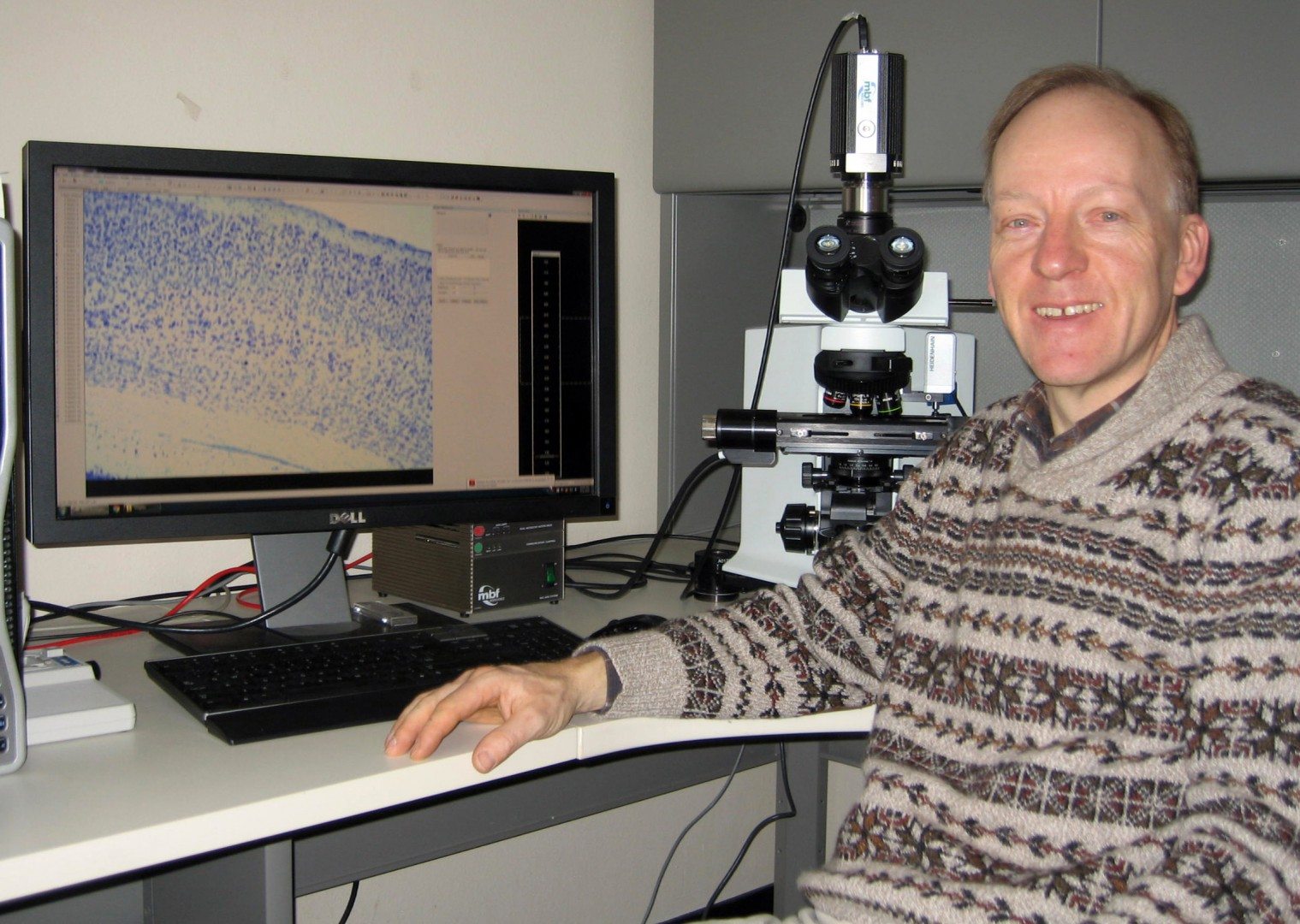
UW veterinary pathologist Jonathan Fox received a patent for a method that potentially could be used to help treat patients with Huntington’s disease and other neurodegenerative diseases. (Julia Fox Photo)
UNIVERSITY OF WYOMING – The University of Wyoming recently was awarded a patent for a method that potentially could be used to help treat patients with Huntington’s disease and other neurodegenerative diseases.
Jonathan Fox, a veterinary pathologist and associate professor in the UW Department of Veterinary Sciences, is the inventor. He studies mice genetically engineered to have Huntington’s disease.
Huntington’s disease, which affects about 30,000 people in the United States, is caused by a protein called huntingtin that, when in the mutant form, misfolds and accumulates in neurons. This eventually results in degeneration in brain areas important for movement, mental health and memory. Fox says that, currently, there are no treatments that are effective in slowing progression of the human disease.
Fox developed a method for decreasing the levels of the disease-causing mutant huntingtin protein. This is accomplished by increasing expression of specific proteins that can decrease levels of mutant huntingtin protein in cells.
“Increasing the expression levels of these protective proteins, or using chemical activators of their enzymatic activities, is a potential way to target the proximal cause of Huntington’s disease, which is mutant huntingtin protein,” Fox says. “Since other protein misfolding neurodegenerative diseases have many features in common with Huntington’s disease, the present method may be applicable to other protein misfolding neurodegenerative diseases.”
The findings have created a new marketing opportunity for therapeutic development, says Davona Douglass, director of the Research Products Center (RPC) at UW. The RPC is UW’s technology transfer office that helps inventors patent and license intellectual property. It also helps entrepreneurs and inventors throughout the state to identify, protect and commercialize their intellectual property.
“More research must be done, but we look forward to learning how this technology can be developed for use in a therapeutic setting, potentially providing relief for those individuals carrying the disease mutation,” Douglass says. “We hope this patented innovation can regulate the huntingtin protein misfolds that accumulate in the brain and, ultimately, result in loss of brain functions.”
To learn more about licensing and marketing opportunities, visit the RPC website at www.uwyo.edu/rpc, call Douglass at (307) 766-2509, or email her at [email protected].
